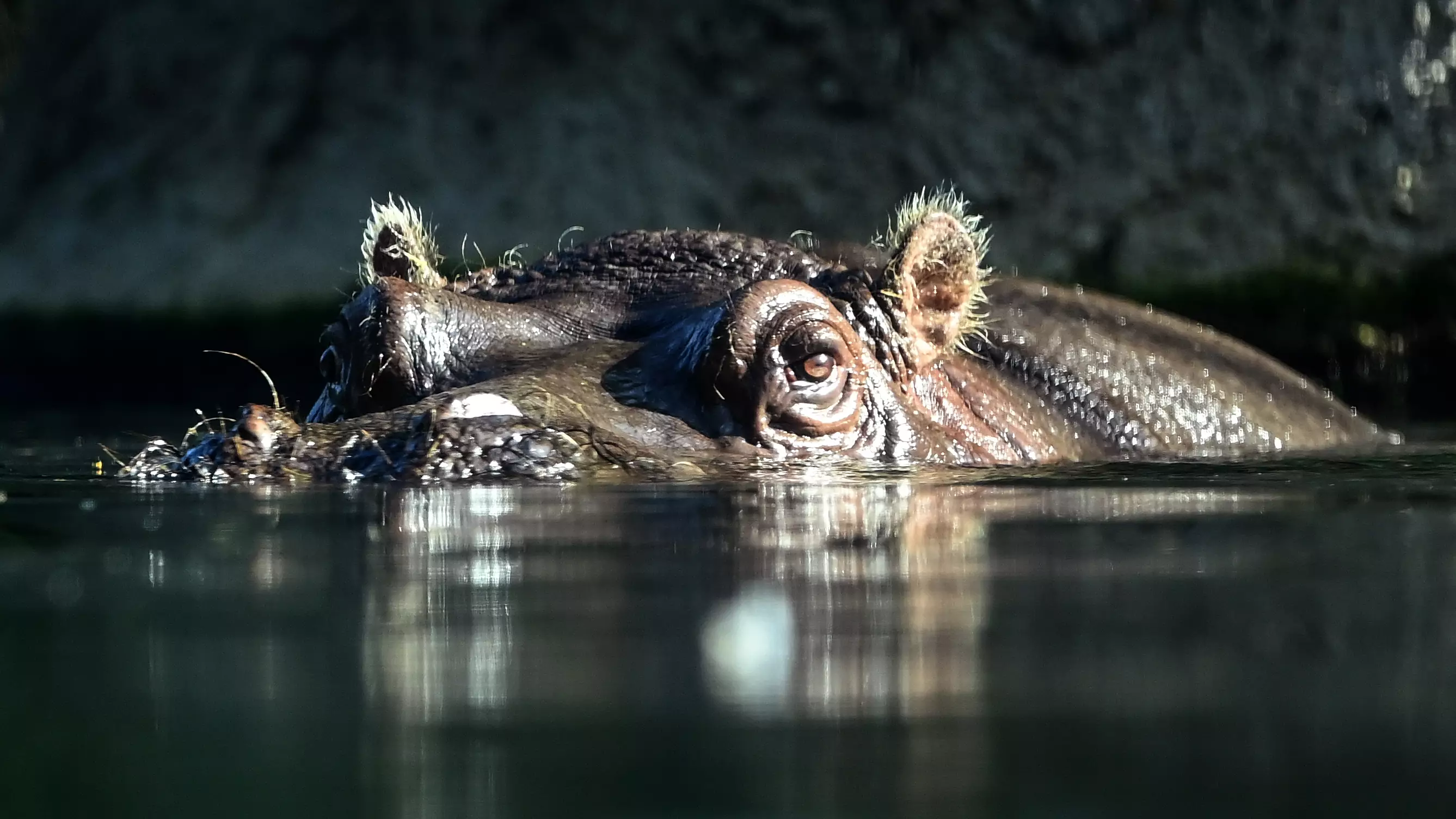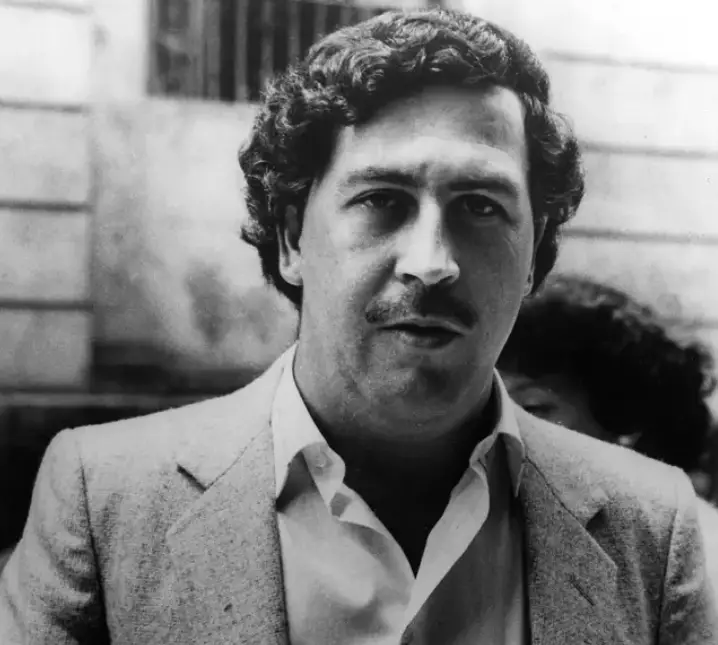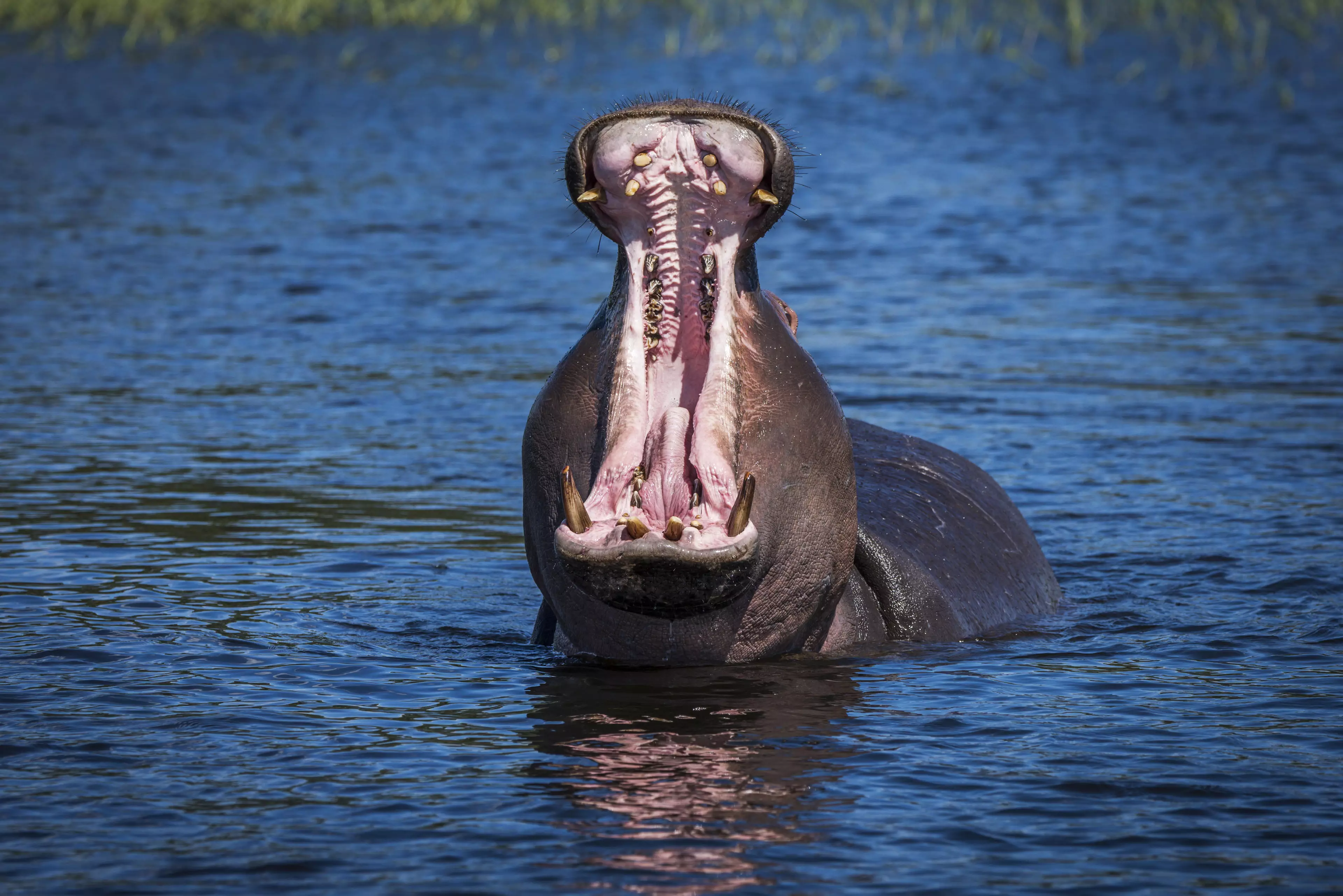
Scientists have called for Pablo Escobar's so-called 'cocaine hippos' to be culled.
The infamous drug lord - who was shot and killed by police in 1993 - had illegally imported four of the mammals for his personal zoo in the 80s.
The government seized control of his estate after his death, but the hippos were left to fend for themselves, and now it is believed there could be as many as 100 of the non-native creatures.

Scientists have warned this number could grow to almost 1,500 by 2040, by which point they will have done irreversible environmental damage and the population will be too large to control.
Advert
The urine and faeces produced by the animals is toxic and contains bacteria that is dangerous to both other creatures and humans.
Their aggression also makes them dangerous. Hippos kill more people annually in their native Africa than any other mammal, and last year one of the 'cocaine hippos' flung a cattle farmer in the air, breaking his hip, leg and several ribs.
Ecologist Nataly Castelblanco-Martínez told The Telegraph: "Nobody likes the idea of shooting a hippo, but we have to accept that no other strategy is going to work.
"Relocation might have been possible 30 years ago, when there were only four hippos.
Advert
"Castration could also have been effective if officials had provided sufficient resources for the programme early on, but a cull is now the only option."

In Africa, hippos have to compete for access to water, fend off disease and avoid being preyed upon by a variety of predators. Whereas in Colombia, an optimal environment defined by an abundance of rain and a lack of predators has allowed Escobar's hippos to thrive.
Environmentalists have been attempting to sterilise the animals, but it is difficult to find them, and just as difficult to find their reproductive organs - with males boasting retractable testes.
Advert
As such, government environmentalist David Echeverri Lopez said he's only been able to castrate around one hippo a year, with the population estimated to grow by roughly 10 percent a year.
Despite losing this game of catch-up thus far, Echeverri Lopez still believes there must be a better solution than a cull.
He told The Telegraph: "There has to be another solution. These hippos have become part of the local identity. But time is running out."
Featured Image Credit: PATopics: World News, Colombia, Animals